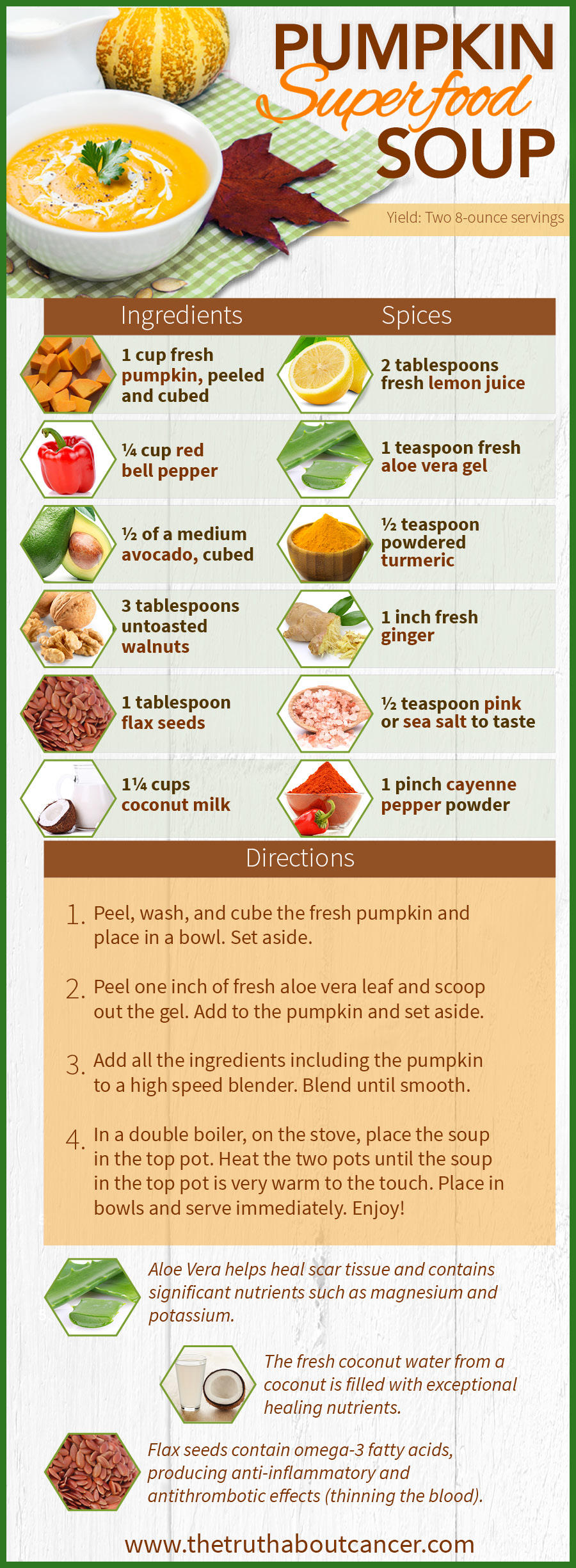It’s bad enough to go through chemo, radiation, and/or surgery due to cancer, but how many cancer patients are ever told about the lingering side effects of these treatments? One such potential problem is that it can become hard to swallow without experiencing significant pain − a condition known as dysphagia.
One of the biggest issues with dysphagia is how to get healing foods into the body when you can’t eat? In this article you’ll discover steps to overcome the pain of swallowing and other tips to bring healing nutrients into the body post-treatment.
4 Conditions Linked to Cancer & Cancer Treatments That Can Make It Hard to Swallow
- Mucositis is the inflammation or swelling of the mucous lining of the food tube. That includes the mouth, throat, and esophagus which goes into the stomach.
- Fibrosis is the stiffening of the tissue in the throat resulting from the scarring of the smooth muscles of the food tube. These muscles help to move food down the tube into the stomach for further digestion. If the muscles are scarred and the slippery mucous is not excreted the food gets stuck going down, causing the patient to cough the food back up.
- Infection is the result of the good bacteria being destroyed with therapy and thus pathogens are free to invade. Once infection sets in it causes inflammation and pain, making it difficult to impossible to swallow anything.
- Inflammation occurs when the throat is infected or damaged by therapy. This turns into swelling that closes the throat thus preventing food from passing through it.
Other Reasons for Dysphagia
- Tightness in the throat can occur from anxiety and stress. A condition known as esophageal achalasia prevents food from moving down the esophagus and keeps the esophageal sphincter tight. This keeps the food from moving into the stomach. Choking, spasms, and vomiting can occur as a result. Learning how to relax the muscles and hold your head in ways to open the passage are helpful during attacks.
- Deficiency in iron can cause web-like tissue shelves to form on the lining of the throat. The food can get caught on these extensions and prevent you from swallowing your food. Increasing digestible iron in your diet can help resolve this issue.
- Emotional issues surrounding eating and the pain of eating are also relevant. Obviously, if you are afraid to eat because of pain and embarrassment from choking or vomiting it is unlikely you will desire to eat socially. However, the anxiety alone can cause tightening in the throat which can trigger dysphagic episodes. Learning to be calm and control your throat while swallowing will do a world of good. Also, believe that changing the form of your food into drinks, soups, or soft side dishes can help you swallow it. These little changes will make a big difference. Furthermore, you will feel better and increase your confidence as well as strengthen your body.
Natural Remedies for Dysphagia
#1 – Foods
- Raw coconut oil consumed alone or in a smoothie will help kill fungus and viruses and will feed the body with important nutrients and fatty acids to keep the body strong. Adding the coconut water from a fresh coconut is also a good idea as it is filled with exceptional healing nutrients.
- Fresh organic bananas add potassium.
- Fresh ground organic flaxseed is good as a cereal additive for your smoothie to increase fatty acids and as a replacement for grains.
#2 – Herbs
- If the throat is infected you can use wild oregano oil or olive leaf extract to coat the throat and kill the bacteria or virus.
- Aloe Vera and raw cacao in a smoothie will help heal the scar tissue and add significant nutrients such as magnesium and potassium to help with the muscle contractions. Magnesium and potassium work to balance the ratio of relaxed and contracted muscle tissue.
- Plantain, sweet violet, and St. John’s Wort in a tea infusion will help heal the tissue while significantly reducing pain. They are also useful to calm the nerves which is effective to relax the muscles causing the spasms in the first place.
#3 – Techniques
- Relax the throat by tilting your head back and stretching the throat gently. Change positions while dropping your jaw and stretching forward and back. This will help relieve the tension.
- You can also experiment with water. Try taking in some water and adjusting your head and jaw to open the throat until swallowing is easier. It is different with food but this will help get you acquainted with your throat and jaw to discover ways to assist your esophagus until the area is functioning better.
- Place hot compresses of St. John’s Wort oil on a cloth soaked in hot water may help. Apply one to two droppers of St. John’s Wort oil to the wet cloth and hold the compress on the area for ten minutes or until the cloth cools. Do this until the pain subsides.
Other Tips for When You Find It Hard to Swallow
It’s often easier to swallow a liquid that’s thicker than plain water. So thicken your drinks with high-quality nutrients such as freshly ground flax seed. This will produce anti-inflammatory effects, and will add fatty acids and antioxidants to your diet.
Eating smaller meals more frequently can help by giving you less to consume while maintaining nutrient levels in the body. If you are only able to eat a little, you have to make it count. Feed your body the most nutrient-dense foods possible. Check out the recipe at the end of this article to help you get started.
Both fish oil and flaxseeds contain omega-3 fatty acids, producing anti-inflammatory and antithrombotic effects (thinning the blood). They also have a beneficial impact on one’s lipid profile, for they increase HDL cholesterol and decrease triglycerides.
Recipe to Alleviate Dysphagia
Have you suffered from dysphagia? Please share your experience and helpful tips in the Comments section below.
Article Summary
Cancer treatments often come with side effects, including dysphagia, a condition in which it becomes hard to swallow without significant pain.
There are 4 conditions linked to cancer and cancer treatments that can make it hard to swallow:
- Mucositis: the inflammation or swelling of the mucous lining of the food tube. That includes the mouth, throat, and esophagus which goes into the stomach.
- Fibrosis: the stiffening of the tissue in the throat resulting from the scarring of the smooth muscles of the food tube.
- Infection: the result of the good bacteria being destroyed with therapy and thus pathogens are free to invade.
- Inflammation: occurring when the throat is infected or damaged by therapy.
There are other reasons for dysphagia, including:
- Tightness in the throat from anxiety and stress
- Deficiency in iron
- Emotional issues surrounding eating and the pain of eating
Natural remedies for dysphagia include:
- Foods like coconut oil, bananas, and ground flaxseed
- Herbs like oregano oil, aloe vera, and plantain
- Techniques to relive tension and pain during swallowing




















Dear Debra I am so thankful for your in depth knowledge in this area . And envious of your travels to such wonderful places in pursuit of what you love
Any more ideas for a dear family member who is a free spirit but has been hospitalised for over a year with this condition ( whom they have given no prognosis of improvement)
Thank you in advance and I would love to see picture of you travels
Any chance of remedies for alopecia
Best Regards and God Bless
Nicholina
When I had an abscess as a kid in the late 1980s and early 1990s, I had difficulty swallowing because I had swollen lymph nodes in my throat due to a big abscess in my tooth. I could liquidy foods such as soup, fruits, and vegetables down my throat not meat nor bread down. People suggested that I ate soup if I was having this problem.